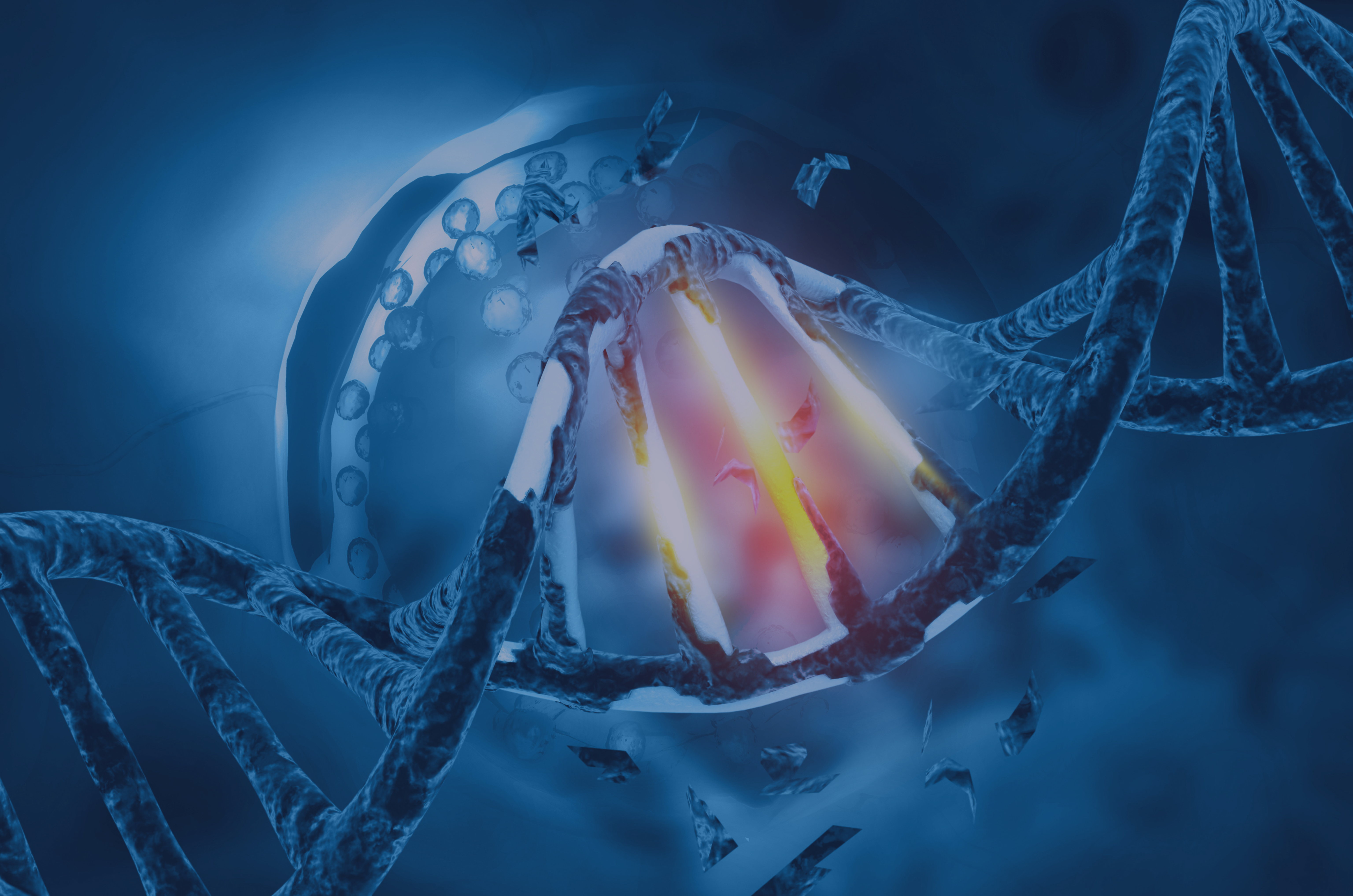We will contact you shortly to schedule a convenient appointment.
Karyomapping
Reduces the risk of transmitting monogenic disease to the embryo.
Preimplantation genetic testing for monogenic diseases (PGT-M) reduces the risk of transmitting a specific genetic disease to a child, thereby increasing the chance of a successful IVF procedure and the birth of a healthy baby. One of the most advanced systems for indirect identification of defects in single genes is PGT-M by karyomapping. Gyncentrum Genetic Laboratory is the first and only laboratory in Poland to use it.
AtGyncentrum Genetic Laboratory, in addition to karyomapping, we also perform other preimplantation genetic tests, including: PGT-A, niPGT-A, PGT-M and PGT-SR.

Get the chance to have a healthy baby!
Make an appointment for a consultation with a Gyncentrum infertility treatment specialist
What is karyomapping?
Karyomapping, or so-called karyomapping, is a new technique for genetic diagnosis of embryos prior to their transfer into the uterus. Thanks to it, couples using the IVF procedure can avoid passing on to future offspring a mutation in a single gene they carry.
Karyomapping checks for about 300,000 single nucleotide polymorphisms (SNPs, or single nucleotide polymorphisms), i.e. changes within the basic components of human DNA. Each nucleotide is designated by a letter symbol A, T, C, G. Arranged in the correct order, the nucleotides form nucleotide sequences. These, in turn, determine the order of the 20 amino acids that make up proteins. Sometimes, however, a mistake will occur within a given sequence and a letter is replaced by another. Single nucleotide polymorphisms are just such “typos,” and karyomapping by identifying them allows us to detect monogenic disease. Using karyomapping, we can examine maternal, paternal or other family members’ chromosomes and, based on this, create a DNA “fingerprint” of the chromosome where the mutated gene is located.
Make an appointmentWho should perform Karyomapping?
Monogenic (single-gene) diseases are diseases caused by a mutation in a single gene. Offspring can inherit them from one or both parents. With that said, the risk of transmitting a monogenic disease to an embryo varies depending on how it is inherited, which can be recessive, dominant or sex-linked. Cariomapping is recommended for couples who have a high risk of transmitting a specific defect in a single gene. Among the indications for karyomapping are:
- The presence of monogenic diseases in the family
- Carrying a monogenic disease by at least one partner
- Pregnancies ending in miscarriage
- Unsuccessful in vitro fertilization attempts

How is the karyomapping going?
In the first stage of the test, the parents or their closest relatives (usually another child of the couple) donate samples of their DNA (peripheral blood). The genetic material collected is then analyzed and compared with the embryo’s DNA. Using karyomapping, it can be assessed whether the embryo has inherited a piece of the genetic code with a mutation from either parent.
Make an appointment for a consultationWhy is it better?
First of all, karyomapping allows the human genome to be examined for a wide variety of single gene mutations in a very short time. The method also does not require any special preparations on the part of the clinic or changes to existing procedures. As a result, an infertile couple can proceed more quickly with the IVF procedure.
Call usWhat diseases does karyomapping detect?
Karyomapping detects mutations in single genes that may be responsible for diseases such as:
- cystic fibrosis
- spinal muscular atrophy
- metabolic disorders
- familial hypercholesterolemia
- neurofibromatosis
- Huntington’s chorea
- Marfan syndrome
- fragile X chromosome syndrome
- muscular dystrophies
Cariomapping combines the capabilities of PGT-A
In addition to mutations in single genes, with karyomapping we can also examine the embryo for the most common aneuploidies, i.e. Down syndrome, Patau syndrome, or Edwards syndrome. That is, it combines, so to speak, the possibilities offered by PGT-A ( Preimplantation Genetic Testing for Aneuploidy). In this way, only embryos with the correct number and structure of chromosomes are selected for transfer, thus reducing the risk of failure of the IVF procedure and increasing the chances of having healthy offspring.




